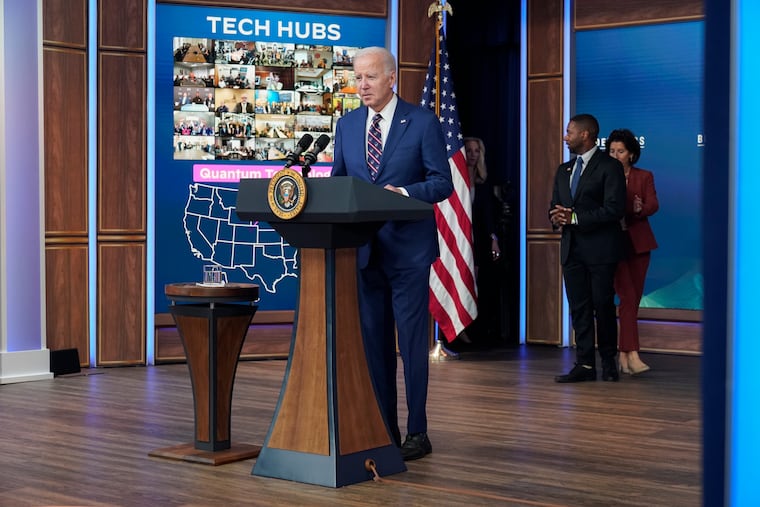Our glum outlook could tank the economy and sway the 2024 election
High inflation means a typical American household must spend close to $1,000 more a month to purchase the same goods and services as it did three years ago.

Americans are glum. Most surveys and polls suggest that collectively we are not happy with our financial situation or what lawmakers are doing about it.
In measuring the mood of Americans when it comes to the economy and their personal finances, the gold standard for decades has been a monthly survey conducted by the University of Michigan. Sentiment is at its darkest, save for in the deep gloom of the pandemic shutdowns, at the height of the global financial crisis, and when the economy suffered consistent double-digit unemployment more than 40 years ago, according to the survey.
This is perplexing given that unemployment today is rock solid below 4%. And given all the job openings in the wake of the pandemic, many of us quit jobs we weren’t happy with and took ones that paid better and were more suited to our skills and interests. Indeed, according to a recent job satisfaction survey done by the Conference Board, we are as content with our new jobs as we’ve ever been.
Why are people so down on the economy?
Before explaining what’s behind our dark mood, it is important to caution not to read too much into surveys. There is clearly survey fatigue — we are increasingly bombarded with surveys and getting tired of taking them. As such, response rates to most surveys are way down and falling fast. A survey is only informative if the responses are representative of the broader population, and that gets more difficult if fewer people are responding.
This caveat aside, in judging the state of the broader economy and our own private economies, it is clear we aren’t feeling that great.
The mostly likely culprit is inflation, which took off almost three years ago. First, because of the pandemic, there were severe disruptions to global supply chains and the job market. Then came Russia’s invasion of Ukraine and the resulting surge in oil and agricultural prices. The sanctions on Russian oil pushed gasoline prices to an all-time high of $5 per gallon.
Nothing makes us more upset than having to pay more at the gas pump. After all, we have no choice but to purchase gas to get to work and get around. Also, because it is a price many of us see daily, it is instrumental in shaping our perceptions of inflation and our economic situation more broadly. When oil prices are up, like they have been, it is difficult to feel good about anything.
Of course, prices are up a lot for most everything, including other staples such as food and rent. High inflation means a typical American household must spend close to $1,000 more a month to purchase the same goods and services as it did three years ago. That’s tough to bear, since household incomes are up by only about one-third of that amount.
What to expect if our perception of the economy doesn’t change
If my diagnosis of what ails us is roughly correct, we should soon begin to feel a bit better about things. Inflation is slowing down as the economic fallout from the pandemic and Russian war fade, and gasoline prices are back down to $3.50 per gallon. Barring another shock, such as the Middle East being engulfed in strife and oil prices surging again, inflation should be even lower a year from now. Our incomes will have a chance to catch up more with the higher prices.
This is critical to ensuring the economy continues to avoid a recession. Ultimately, a recession is a loss of faith. Nervous consumers lose faith, worry they will be laid off, and pull back on their spending. Businesses lose faith that they can sell what they make, and they lay off workers. A dark, vicious, reinforcing cycle takes hold. The longer the collective psyche remains so fragile, the greater the threat that something else happens, even an ostensibly small thing, and pushes us into a downturn.
How we feel a year from now will also have significant bearing on how the presidential election will play out. Given our sour mood on the economy, President Joe Biden has gotten no credit for his economic policies. The massive American Rescue Plan has been instrumental in getting quickly back to sub-4% unemployment, increased infrastructure investment, and incentives to bring semiconductor production back home and address climate change. Despite that, polls show that the electorate is down on Biden’s handling of the economy. This likely has less to do with his policies, and more to do with our sour mood. And this may decide the next election.
Americans’ inherent optimism has been a key to the success of our economy since our founding. We need to snap out of this glum spell. Fast.
Mark Zandi is chief economist for Moody’s Analytics.